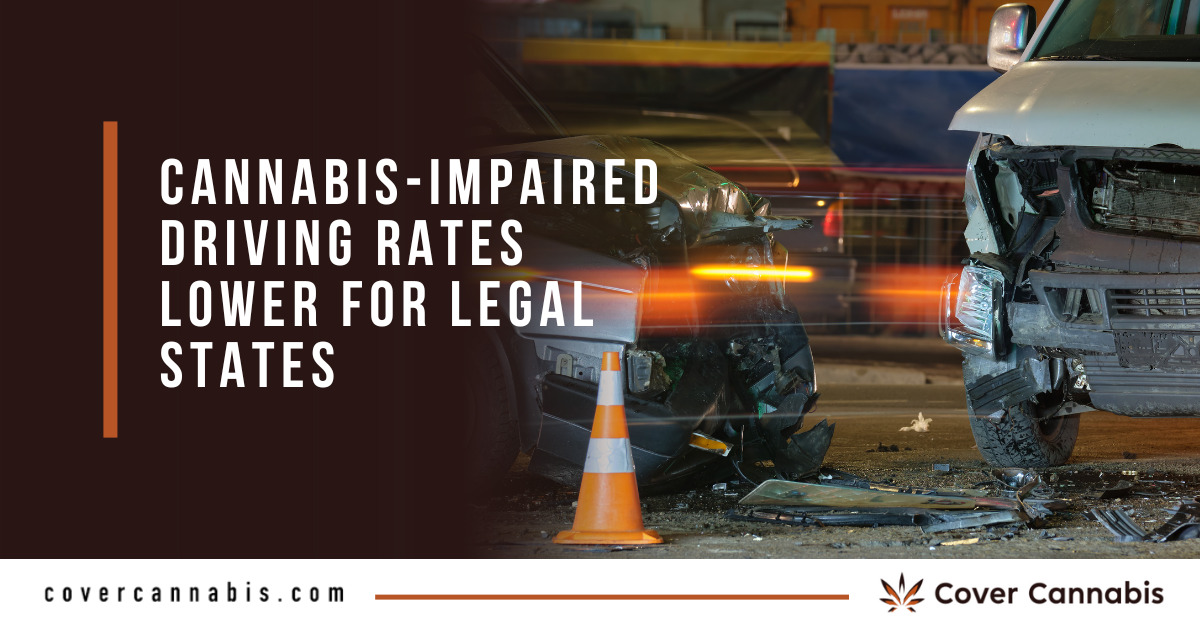


According to recent studies, states that have legalized marijuana are experiencing a decrease in potentially risky behavior compared to states where marijuana remains illegal. This trend is contributing to a reduction in the number of people driving under the influence of cannabis. Researchers believe that driving under the influence of cannabis is less dangerous than driving under the influence of alcohol. They also found that people are less likely to intervene when they see someone else acting recklessly. Importantly, the number of car accidents or injuries caused by driving while intoxicated has not increased since the legalization of cannabis.
A study by RTI International concluded that the likelihood of self-reported driving under the influence of cannabis (DUIC) was significantly lower in states with legalized recreational and medical marijuana compared to states without such laws. Specifically, current cannabis users in states with legalized recreational and medical cannabis were much less likely to report driving within three hours of getting high in the prior 30 days compared to users in states where cannabis is illegal.
Researchers suggest that driving under the influence of cannabis is less dangerous than driving under the influence of alcohol. This is supported by data showing that cannabis users are less likely to engage in reckless behavior while driving. For instance, they are more cautious and tend to avoid high-risk driving situations. Additionally, the perception of cannabis as a less harmful substance compared to alcohol may contribute to more responsible usage among consumers.
Despite concerns, the number of car accidents or injuries related to driving while intoxicated has not increased in states where cannabis is legalized. This finding supports the argument that cannabis legalization does not lead to more dangerous driving conditions. Instead, it may help to mitigate risks by reducing the incidence of alcohol-related accidents, which are generally more severe.
California, one of the largest states with legalized recreational cannabis, has seen significant changes. The state reported a decline in DUI arrests and traffic fatalities. According to the California Highway Patrol, there was a notable decrease in DUI arrests in the first year after legalization. Additionally, public awareness campaigns about the dangers of driving under the influence of any substance have contributed to safer driving behaviors.
Colorado, another pioneer in cannabis legalization, has also experienced positive outcomes. Studies conducted by the Colorado Department of Transportation show that while there was initial concern about an increase in DUIC, the overall rate of traffic incidents has not risen. Public education efforts and strict enforcement of DUI laws have played a crucial role in maintaining road safety.
In Washington state, research indicates that legalization has not led to an increase in traffic accidents. The Washington Traffic Safety Commission found that the rates of DUIC have remained stable, and efforts to educate the public on safe cannabis consumption have been effective.
This research provides evidence to support claims that marijuana is a relatively safe drug and that criminal possession cases may not be worth prosecuting. Additionally, it highlights the importance of focusing on more severe substances, such as alcohol, which have a higher impact on road safety. The findings suggest that with proper regulation and public education, cannabis legalization can coexist with road safety.
Driving requires complete focus, and making the right choices at the appropriate moment can decrease the chances of a fatality. While cannabis may be considered less harmful than alcohol, it is crucial to follow local regulations and practice safe driving habits at all times. Legalization efforts should continue to emphasize responsible consumption and road safety to ensure that the benefits of cannabis legalization do not come at the expense of public safety.
Sources: